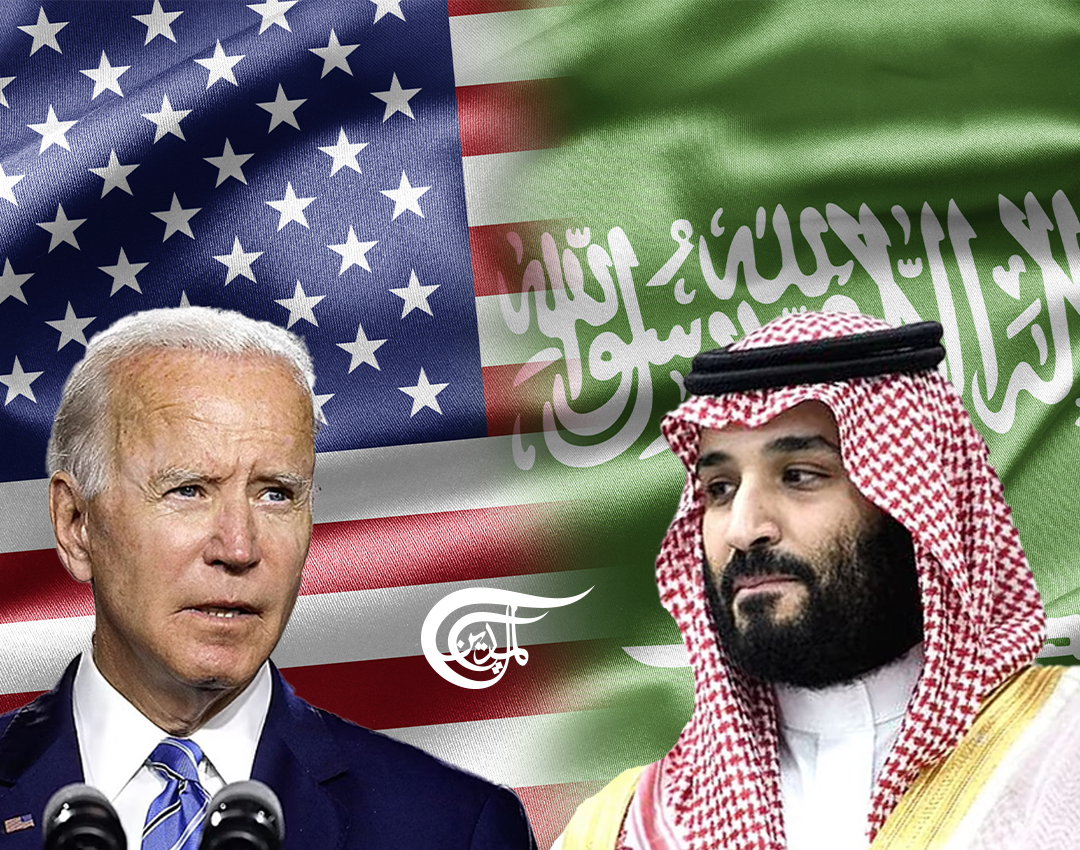The US Might Countenance a Military Coup in Saudi Arabia
A military takeover would rid the US of MBS’ toxic brand as well as the dangers of a looming succession crisis.
The Western press has an understandable tendency to present the US-Saudi relationship as a ‘troubled alliance’ or ‘tense relationship’ rather than that between an imperial patron and a regional client regime. Framing the dynamic in such a way serves to present the Saudi regime as having more agency than is in fact the case and also absolves the US of moral culpability for its actions. The so-called ‘Saudi-led’ campaign against Yemen stands out as just the most egregious current example.
Recent actions by the US administration do seem however to suggest some degree of unease, not with the Saudi-US relationship per se, but with the Kingdom’s current management.
Last week’s withdrawal of Patriot missile batteries represented an unusual departure for a country more accustomed to stacking the Persian Gulf with its military hardware. Despite the Patriot systems’ by now legendary ineffectiveness, the move drew immediate howls of disapproval not least from the long-time director of intelligence and former Saudi ambassador to the US, Turki Bin Faisal. The son of the former king, Prince Turki has been among the Saudis most deeply ensconced within the halls of power in Washington.
The withdrawal itself could mean any number of things. It could be making way for potential Israeli sales of the Iron Dome system to the GCC states. It could be an American gesture to the Iranians in the context of its interminable non-renewal of the JCPOA. Or it could be a gesture to Riyadh itself that the House of Saud is ultimately expendable if it no longer serves the purposes of the masters in Washington.
A similar conclusion could be drawn from the Biden administration’s approval for families of the 9/11 victims to sue the Saudi regime over the alleged involvement of its members in the 2001 terrorist attacks. This year’s 20th anniversary also coincided with the first declassifications of documents pertaining to alleged Saudi knowledge of and involvement in the attacks. Were these revelations to uncover any level of Saudi government involvement, America’s near century-long patronage of the House of Saud would surely come under overwhelming public pressure.
Such a public relations fiasco would only compound years of toxic press for the royal family, particularly its most prominent member, Crown Prince Muhammad bin Salman. Since effectively seizing power from his ailing father, King Salman, MBS has accumulated an impressive record of miscalculation and recklessness. The murder and dismembering of a mildly critical Saudi journalist, Jamal Khashoggi, put an embarrassing stop to the Western media’s sycophantic fawning over the ‘modernizing’ millennial royal. With the apparent backing of then-US president Trump the Crown Prince also took it upon himself to fracture the Gulf Cooperation Council, instigating the blockade of Qatar in 2017, which lasted some three years before being abandoned, having failed to achieve any of its goals.
His most damaging mis-step however, was the ill-fated intervention in Yemen in 2015 to prevent a complete takeover of the country by the Houthi-led Ansar Allah movement. Not only did he succeed in creating the world’s largest, worst, and most scandalous humanitarian disaster, the would-be monarch’s war of choice in Yemen, now in its seventh year, has categorically failed to defeat the de-facto Houthi government in Sanaa and instead exposed the very heartland of the US-protected Persian Gulf energy-system to repeated drone and ballistic missile barrages.
With such a disastrous apprenticeship already behind him, it is hard to believe that Washington is not dreading what he will accomplish once informal control of the Kingdom.
Looming Succession Crisis
Another likely US anxiety about the future King Muhammad bin Salman is that he won’t have control of Saudi Arabia, whether formal or otherwise. The eventual demise of the 85-year-old King Salman will mark not just the transition from father to son, but a generational shift of power.
Salman, like all of his predecessors since 1953, is a son of the Kingdom’s founding monarch, Abdul-Aziz ibn Saud. To knit his realm together, the king resorted to marrying into each of the major tribes he came to rule. Doing so gave each member tribe the chance to see a son of their daughter potentially become king himself.
Since the death of Abdul-Aziz in 1953, this arrangement provided a relatively stable settlement as the succession passed agnatically, from brother to brother rather than father to son. As the decades rolled on, however, it yielded a gradually narrowing field of future candidates as well as increasingly geriatric monarchs. The previous king, Abdullah, effectively ruled for a decade before his accession as regent for his half-brother King Fahd who was incapacitated by a stroke in 1995. During his own reign from 2005 to 2015, Abdullah was predeceased by no less than two crown princes, first the Defence minister Prince Sultan bin Abdul-Aziz and then barely a year later by the Interior Minister Nayef bin Abdul-Aziz. The position was now with its third candidate, governor of Riyadh Prince Salman when he finally acceded in 2015 at the age of 80 and reportedly already suffering the effects of dementia.
His first appointed Crown Prince was another half-brother Muqrin bin Abdul-Aziz, at 70 one of the youngest remaining sons of the founder. He was shortly dismissed for the king’s nephew Mohammad bin Nayef in recognition of the fact that power will soon have to pass to the grandsons of Abdul-Aziz ibn Saud.
This moment is surely dreaded by the Saudis as much as the Americans as it will effectively render the settlement of the first king’s reign obsolete. Many powerful tribal factions will see themselves excluded from the inner circle of power. The most likely outcome in any scenario such as this will be a fratricidal bloodbath, with competing tribal factions backing different princes. We have already seen a portent of this in the brutal sidelining by MBS of his cousins. The longer these rivalries gather steam, the greater the likelihood that Salman will be the last king of a united country.
For the Biden administration, its pivot to the Indo-Pacific well underway, the prospect of its closest regional surrogate disintegrating is no doubt very much on its mind. A sudden and effective seizure of power the US-armed and trained military could bring a welcome release of pressure. Not only would it create the impression, however temporary, of a clean slate for both the Saudi and American publics, but it would also spare Washington the tedium of having to mediate a generational power struggle within a society it barely understands.
This is not to say that a military coup is imminent, but the recent signals of American disapproval could be read as a subtle plea to be rid of a turbulent prince and his aging House.

 Samuel Geddes
Samuel Geddes
 7 Min Read
7 Min Read












